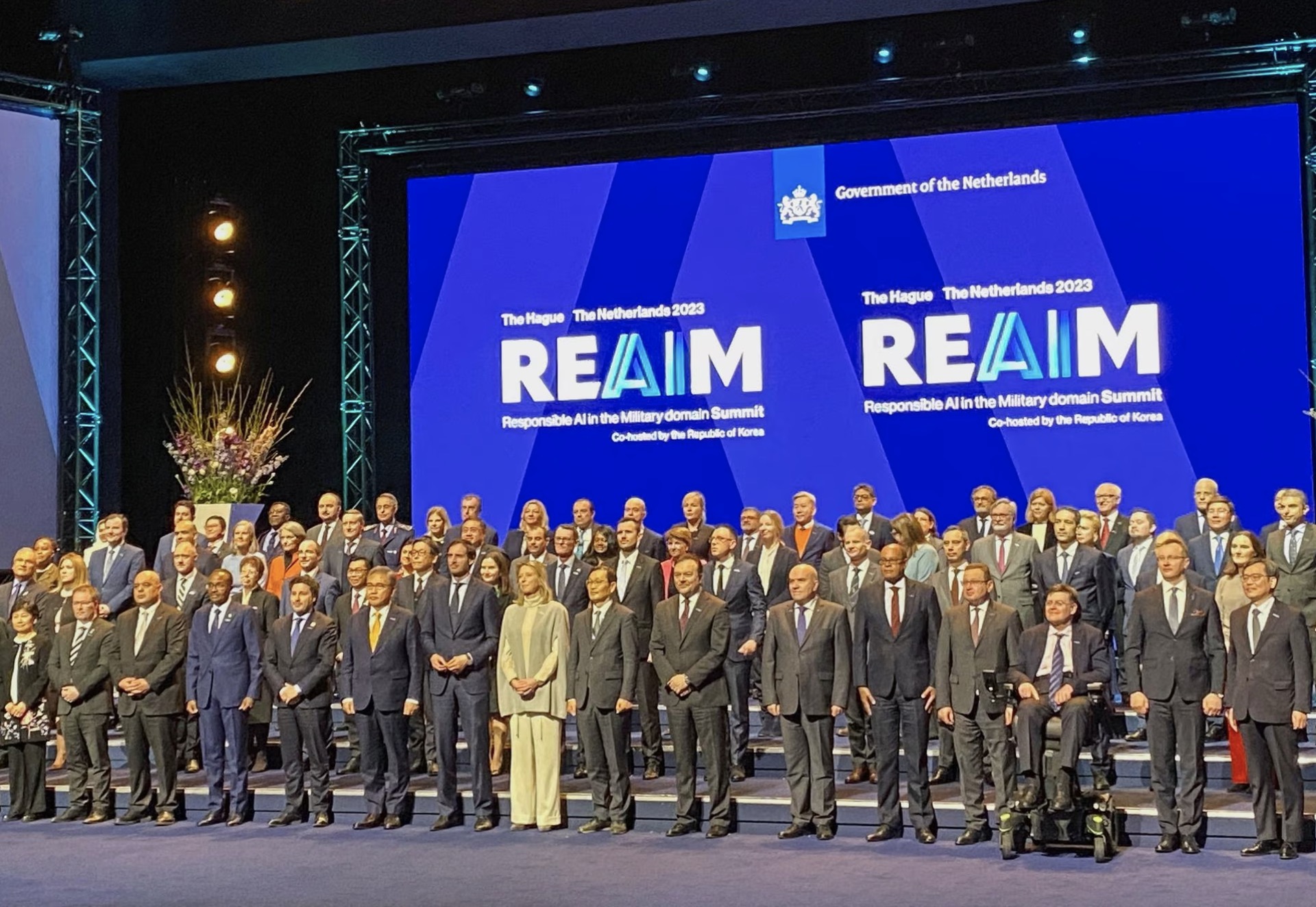
Representatives pose after attending the first international summit on responsible use of artificial intelligence (AI) in the military, in The Hague, Netherlands, February 16, 2023. /Reuters
Representatives pose after attending the first international summit on responsible use of artificial intelligence (AI) in the military, in The Hague, Netherlands, February 16, 2023. /Reuters
China urged unity of all nations for responsible application of military artificial intelligence (AI) at the first international summit on military AI, co-hosted by the Netherlands and South Korea this week at The Hague.
The conference, held from Wednesday to Thursday, comes as interest in AI is at all-time highs thanks to the launch of OpenAI's ChatGPT program, and as Ukraine has made use of facial recognition and AI-assisted targeting systems in its conflict with Russia.
China representative Tan Jian told the summit that countries should "oppose seeking absolute military advantage and hegemony through AI" and work through the United Nations (UN).
Opposing artificial barriers to science and technology, China aims to ensure that all countries fully enjoy the right to technological development and peaceful use, said Tan.
The country has always attached great importance to AI security governance, with continuously strengthened legal, military, technological and ethical research, and improved relevant security governance.
So far, China has submitted two proposals to the UN on regulating the application of military AI and strengthening its ethical governance, Tan added.
A total of more than 80 countries took part in the summit, with over 1,700 participants from governments, think tanks, enterprises and scientific research institutions.

A view of a local protest against killer robots in Berlin, Germany, March 21, 2019. March 21, 2019. /CFP
A view of a local protest against killer robots in Berlin, Germany, March 21, 2019. March 21, 2019. /CFP
First 'call to action' for world's military AI
More than 60 countries, including China and the U.S., signed a modest "call to action" on Thursday, endorsing the responsible use of AI in the military, Reuters reported.
Human rights experts and academics noted the statement was not legally binding and failed to address concerns like AI-guided drones, "slaughterbots" that could kill with no human intervention, or the risk that an AI could escalate a military conflict.
However, the statement is a tangible outcome of the summit.
Signatories said they were committed to developing and using military AI in accordance with "international legal obligations and in a way that does not undermine international security, stability and accountability."
Israel participated in the conference but did not sign the statement.
U.S. Under Secretary of State for Arms Control Bonnie Jenkins put forward a U.S. framework for responsible military AI use.
The proposal said that AI-weapons systems should involve "appropriate levels of human judgment," in line with updated guidelines on lethal autonomous weapons issued by the Department of Defense last month.
"We want to emphasize that we are open to engagement with any country that is interested in joining us," Jenkins said.
Human Rights Watch challenged the U.S. to define "appropriate," and not to "tinker with political declarations" but to begin negotiating internationally binding law.
Jessica Dorsey, assistant professor of international law at Utrecht University, said the U.S. proposal was a "missed opportunity" for leadership and the summit statement was too weak.
"It paves the path for states to develop AI for military purposes in any way they see fit as long as they can say it is 'responsible,'" she said. "Where is the enforcement mechanism?"
Read More:
China's first deepfake rules to develop AI, prevent misuse enter force
U.S. and EU to launch first-of-its-kind AI agreement
(With input from Reuters)